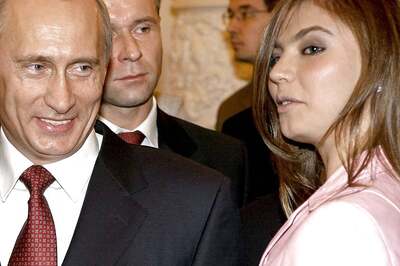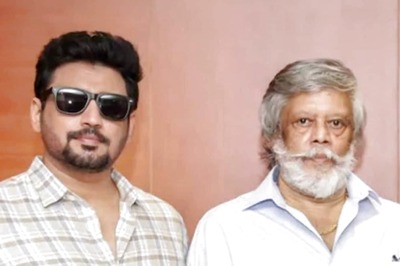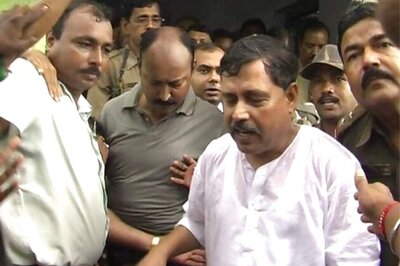
views
Last week, the hills of Darjeeling erupted in a mass outrage following an idle chatter by a radio jockey of a Delhi-based FM radio station, in which the RJ described recently crowned Indian Idol Prashant Tamang, as ‘chowkidwar se Indian Idol’.
The radio jockey's racist remarks on Prashant Tamang's win marks the beginning of a big debate. Senior journalist Swaraj Thapa looks at the larger issue of Gorkha identity and the Indian mindset. Read on...
The controversy surrounding insensitive, derogatory and discriminatory remarks made by a Red FM radio jockey in the backdrop of Prashant Tamang winning the Indian Idol contest on Sony TV has, for once, put the small, shy community of Indian Gorkhas into the limelight. Yet, the larger point, painfully, is being missed completely in the debate.
The inflammatory comments of the RJ, which saw instant condemnation from one and all, is not merely about the Laxmanrekha to be drawn by the radio broadcasting community or the guidelines that a radio jockey has to follow while going about his job.
It is also not just about sensitisation levels that have to be kept in mind while cracking jokes against some other class or community.
On the contrary, it deals with the grave issue of national identity and existence of the small population of Indian Gorkhas, who are very much a part of India. The RJ's comments are representative of the mindset of mainstream India that seeks to paint ethnic Indian Gorkhas and hordes of Nepalese nationals working in India with the same brush.
Ethnic Indian Gorkhas have been facing this peculiar problem of being mistaken for someone else in their own country right since Independence. This, despite the fact that Indian Gorkhas have been a part and parcel of India's developmental process for centuries. The tallest statue in the premises of Parliament, of the valiant Shaheed Durga Malla who fought against the British and was hanged in Delhi jail, is testimony to the contribution of Indian Gorkhas to the freedom struggle. Yet, even after being equal partners in nation building, having shed the same amount of blood as anybody else, they have never found the acknowledgement accorded to other communities in India.
Why should Indian Gorkhas, who are all over India but predominant in Darjeeling hills, Sikkim, Assam, Dehradun and Himachal Pradesh, be discriminated against in their own country? We may be small in numbers. But that does not mean we should be denied the right to be equal stakeholders in the country's progress. Doesn't this amount to violation of the fundamental of Right to Equality in our Constitution?
The culprit that has caused this identity problem for Indian Gorkhas is the Treaty of Peace and Friendship between India and Nepal signed in 1950. The Treaty was conceived as a strategic device to forestall military offensives from China. The then home minister Sardar Vallabh Bhai Patel gave shape to such a Treaty with the intention of creating a buffer between India and China. The Treaty, still in operation, however, has caused irreparable damage to Indian Gorkhas by repeatedly raising doubts about their nationality.
The reciprocal treaty enables Nepalese nationals to cross over freely into India, without passports or any other travel document, work and set up houses. Hence since 1950, thousands of Nepalese nationals have crossed the border everyday and intermingled with the Indian population. Being illiterate, poor and simple, they have serviced the menial job sector, so much so that they have become synonymous with it. But this is where the problem arises. Indian Gorkhas are clubbed together with the migrant Nepalese population which invade India. Apples and Oranges are put together in the same basket.
Bollywood has only compounded the identity crisis for Indian Gorkhas by the unfair picturisation in films. The contribution of Mala Sinha, heroine of yesteryears or that of Vinod Pradhan, the hottest cinematographer of today or the talent of Louis Banks—all of them Indian Gorkhas—is conveniently overlooked to present an unfair image of the community.
So is there a solution which can obliterate the ambiguity over status of Indian Gorkhas?
To begin with, the 1950 Treaty with Nepal must be scrapped immediately. Till the time Nepalese nationals keep on entering India without valid identification and travel documents, problems will continue to arise for Indian Gorkhas. There does not seem any evident advantage, strategic or otherwise, for India to persist with this Treaty. On the contrary, it has only taken away lakhs of jobs going to Nepalese nationals, which otherwise would have gone to our people. The government will also have to put an end to recruitment of people from Nepal into the armed forces. And third, it will also have to favorably consider the demand for statehood, as a means to compensate and address the issue of identity of Indian Gorkhas.
(Swaraj Thapa is Political Bureau Chief with Financial Express, New Delhi)



















Comments
0 comment